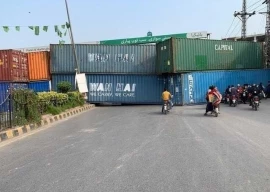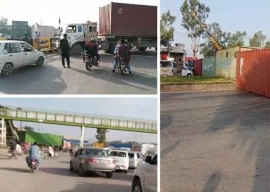
Speakers have urged researchers to come up with innovative and indigenous ideas to find solution to the issues confronting the country.
They were speaking at the inaugural conference of the Pakistan Institute of Development Economics (PIDE), under its Research for Social Transformation and Advancement’ (RASTA) programme held at Bhurban.
The research moot comprised diverse research themes, including energy issues, urban development, technology, and public service delivery, social sector development, markets and regulation, the political economy of development and reform, and sludge - the administrative burden.
In his inaugural address, PIDE Vice-Chancellor and Chairman RAC Dr Nadeem ul Haque referred to one of his papers as the genesis for the RASTA programme.
He said that the ‘enlightenment movement’ was nothing but the exchange of ideas among the great intellectuals of the time. Even Marx wrote that ideas bring change. However, ideas must be indigenous. Without exchange, ideas don’t refine, and without refinement reaching a conclusive solution becomes exceedingly difficult.
The PIDE vice-chancellor apprised the participants that we still have not been able to free ourselves from the colonial clutches.
“Our research is primarily driven by actors that are alien to our situation. Outsiders are driving our research, with perhaps the vested agendas. Though, the onus is on Pakistani researchers. Why they are being silent spectators? Why don’t they question things around us? PIDE’s RASTA is one such platform where it has provided the space for our local researchers to come up with innovative ideas and local solutions. Through RASTA, we have also proved that we can do better than those who steer local research from outside,” he said.
PIDE Pro-Vice-Chancellor Dr Durre Nayab presented her study titled ‘The Assumed Shortage of Housing in Pakistan’ with some interesting results.
“We are short of 10 million housing units” has been a buzzword in politics, media, and donor-driven research for the last 10 years, she stated.
“Given an average household size of well over six persons, this means that nearly onethird of the population is without housing. Do we see such a huge number of people living on footpaths, on the sides of roads, under bridges, or in any open area? Thankfully, no. It is not clear from where did this number come from", she added.
Worryingly, she said “the government also uses this estimate without ever questioning its validity”.
“Sadly, we have based policy on this assumption and initiated a large public housing effort at considerable cost. Not to mention the negative spillover effects on other sectors in the context of tight fiscal space. So, PIDE after digging out the reality concludes that there is certainly not a “deficit of 10 million housing units” in Pakistan, she said.
There may be “inadequate housing” in the country, but not “housing shortage’. The deficit is in the quality of life in the houses, not the absence of housing units, she said.
Earlier, RASTA Project Director Dr Faheem Jehangir Khan, presented highlights of the RASTA journey comprising over one and a half years.
PIDE’s RASTA is a multiyear competitive grants programme for policy-oriented research in Pakistan, under the Public Sector Development Programme of the Ministry of Planning, Development and Special Initiatives.







1732355030-0/BeFunk_§_]__-(41)1732355030-0.jpg)










COMMENTS
Comments are moderated and generally will be posted if they are on-topic and not abusive.
For more information, please see our Comments FAQ